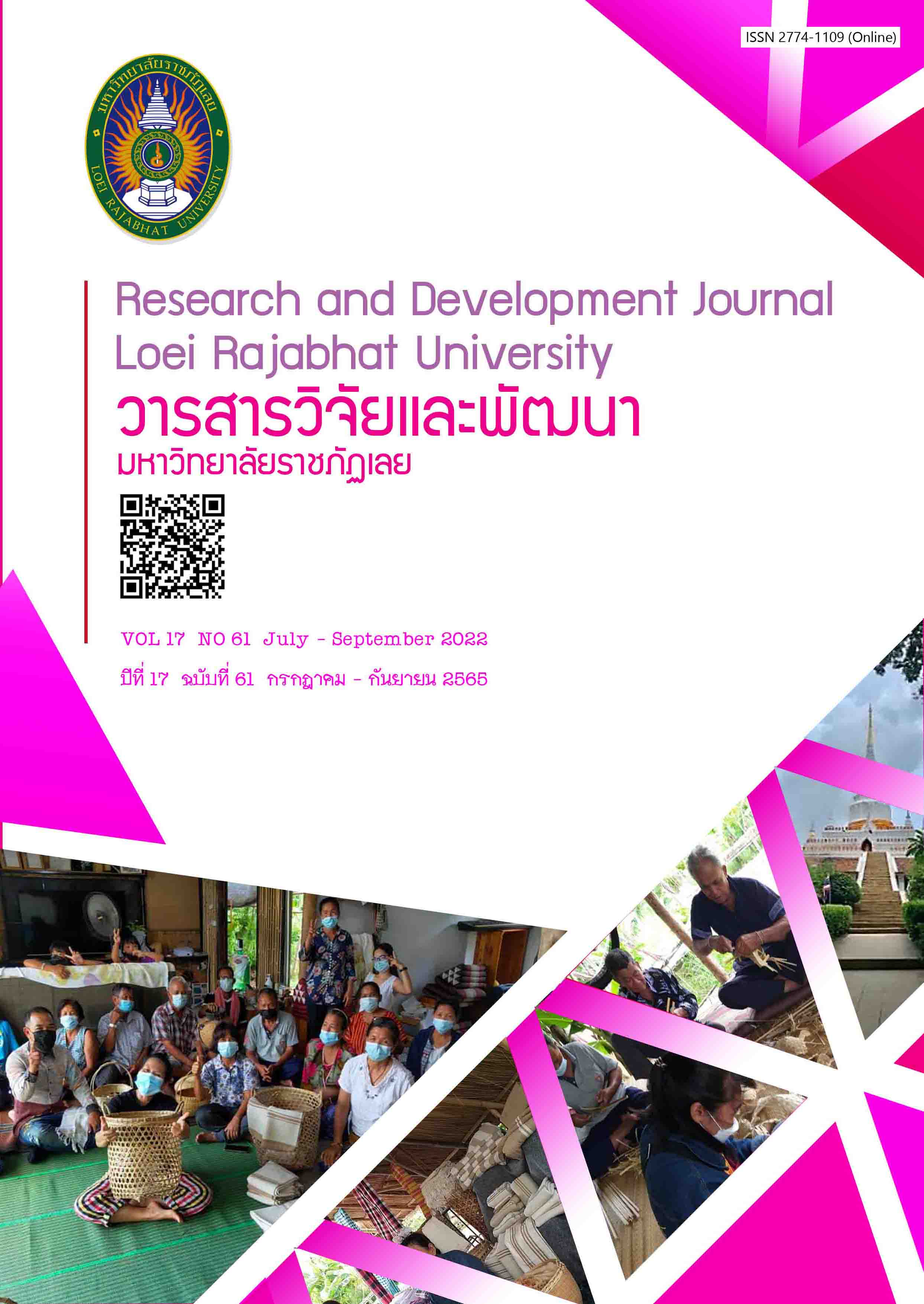Nang-Hab: Buddhist Ethics Volunteer
Keywords:
Buddhist Ethics, Nang-Hab, VolunteerAbstract
Nang-Hab is a long-practiced tradition of volunteer philanthropy of the Saengpha community Na Halo District, Loei Province, is a tradition that shows a firm and deep faith in Buddhism that is inherent in this local tradition. Nang-Hab is the name of a woman who volunteers to receive food to pay tribute to the monks at Wat Si Pho Chai willingly. This tradition of philanthropy is a tribute to merit with its donations, and philanthropy with a waiyawajjamai is to help others according to the principles of merit, the object according to other Buddhist ethics. This tradition of volunteer philanthropy is a tradition of volunteering to pay tribute to monks on behalf of neighbors, a tradition that represents the volunteerism of Nang-Harb, who has acted according to the example that Buddha taught before sending monks to spread Buddhism for the first time. The lord Buddha reiterated that monks should travel to the people's interests. Today, the Sangha community has maintained this tradition with such magnificent traditions, Therefore, tourists are constantly traveling to this Sangha community. If communities do not conserve traditions that are local identities, this may eventually be lost. How can the tradition of merit, the wisdom of the ancestors of this community, persist amid a digital culture influx of information technology by researching, preserving, developing and expanding this tradition to become widespread in other communities.
References
พระปราโมทย์ วาทโกวิโท และ พระมหาหรรษา ธมฺมหาโส. (2562). การพัฒนาวิทยากรต้นแบบตามแนวทางของพระพุทธศาสนา. วารสารสันติศึกษาปริทรรศน์ มจร., 7(4), 970.
พระปลัดสุทธิศักดิ์ สมฺปุณฺณเมธี และ สมควร นามสีฐาน. (2564). จิตอาสากับการพัฒนาเยาวชนไทย. วารสาร มจร., อุบลปริทรรศน์, 6(3), 761-762.
พระราชวรมุนี(ประยุทธ์ ปยุตฺโต). (2528). พจนานุกรมพุทธศาสตร์ฉบับประมวลธรรม. กรุงเทพฯ: โรงพิมพ์มหาจุฬาลงกรณราชวิทยาลัย.
มหาจุฬาลงกรณราชวิทยาลัย. (2539). พระไตรปิฎกภาษาไทยฉบับมหาจุฬาลงกรณราชวิทยาลัย. กรุงเทพฯ: โรงพิมพ์มหาจุฬาลงกรณราชวิทยาลัย.
วิทย์ วิศวเวทย์. (2542). ปรัชญาทั่วไป. กรุงเทพฯ: โรงพิมพ์อักษรเจริญทัศน์.
สมบัติ นามบุรี และ ธิติวุติ หมั่นมี. (2564). การมีส่วนร่วมของประชาชนในการอนุรักษ์ ฟื้นฟูประเพณีวัฒนธรรมท้องถิ่นจังหวัดชัยภูมิ. วารสารการบริหารนิติบุคคลและนวัตถกรรมท้องถิ่น, 7(6), 131-132.
เสฐียรพงษ์ วรรณปก. (2537). พุทธวจนะในธรรมบท (พิมพ์ครั้งที่ 7). กรุงเทพฯ: อัมรินทร์พริ้นติ้ง.
ผู้ให้สัมภาษณ์
ถนัด จันทะคุณ. (2656, 13 มีนาคม). นางหาบชุมชนบ้านแสงภา. [สัมภาษณ์].
พระครูโพธิจริยาภิวัฒน์. (2565,13 มีนาคม). เจ้าอาวาส วัดศรีโพธิ์ชัย บ้านแสงภา. [สัมภาษณ์].
สมบัติ ชิดทิด. (2565, 8 มีนาคม). นายกองค์การบริหารส่วนตำบลแสงภา. [สัมภาษณ์].
Downloads
Published
How to Cite
Issue
Section
License
Copyright (c) 2022 Research and Development Journal, Loei Rajabhat University

This work is licensed under a Creative Commons Attribution-NonCommercial-NoDerivatives 4.0 International License.
ข้อความที่ปรากฎในวารสารฉบับนี้เป็นความคิดเห็นของผู้เขียนแต่ละท่าน สถาบันวิจัยและพัฒนา มหาวิทยาลัยราชภัฏเลย และกองบรรณาธิการ ไม่จำเป็นต้องเห็นด้วยและไม่มีส่วนรับผิดชอบใดๆ
สถาบันวิจัยและพัฒนา มหาวิทยาลัยราชภัฏเลย ขอให้ผู้อ่านอ้างอิงในกรณีที่ท่านคัดลอกเนื้อหาบทความในวารสารฉบับนี้






